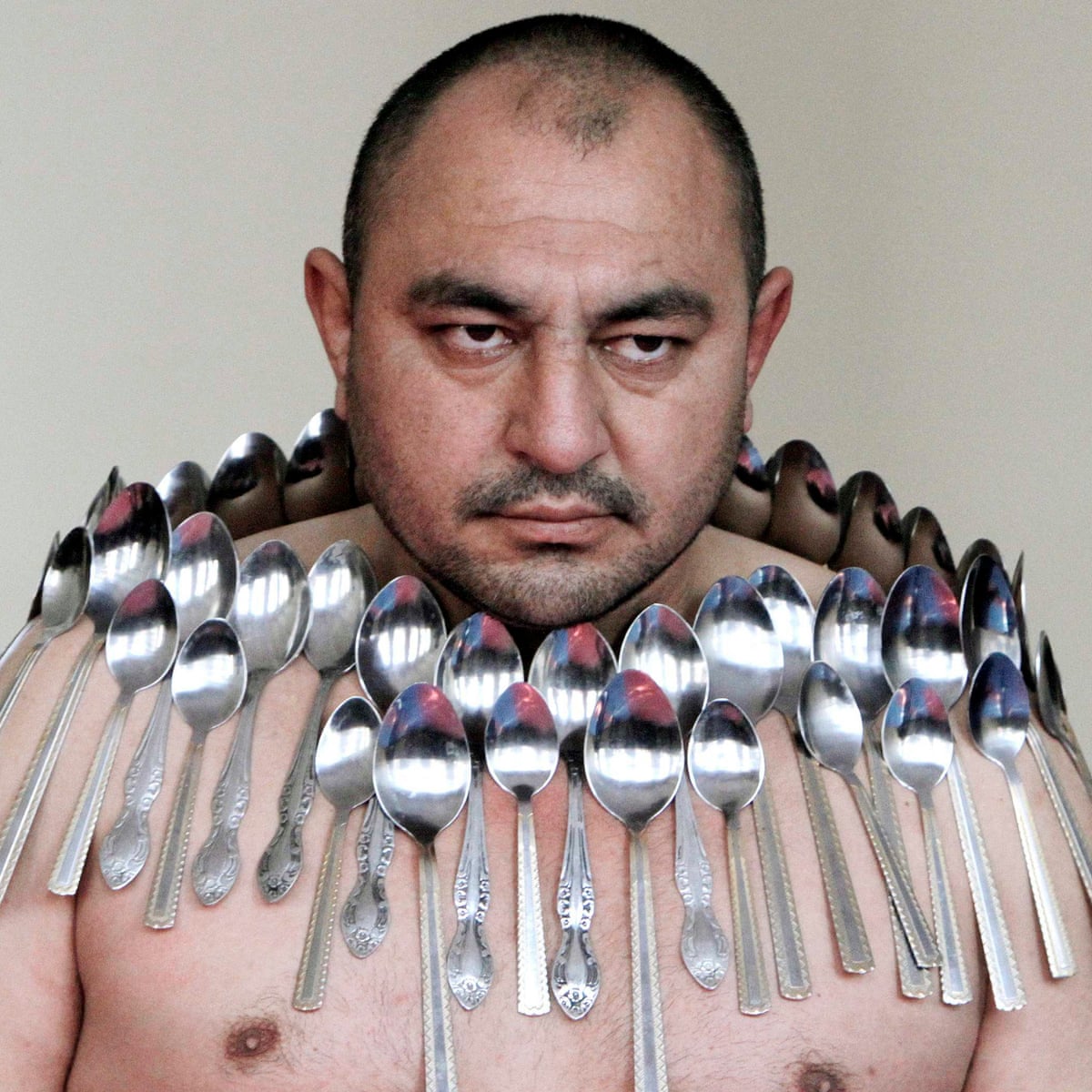Who is the skinniest person in the world? This question often sparks curiosity and concern, as it touches on health, body image, and human resilience. In a world obsessed with physical appearances, extreme thinness has become a topic of fascination. However, it is essential to approach this subject with sensitivity and a focus on health rather than judgment. Extreme thinness can result from various factors, including medical conditions, lifestyle choices, or societal pressures.
Understanding the stories behind individuals labeled as the "skinniest" requires a deeper look into their lives, challenges, and motivations. While some achieve extreme thinness through strict diets and exercise, others may struggle with underlying health issues such as eating disorders or genetic conditions. This article will explore the lives of these individuals, the science behind extreme thinness, and the broader implications for society.
By the end of this article, you will gain a comprehensive understanding of the topic, including the factors contributing to extreme thinness, its impact on health, and how society perceives it. We will also address the importance of prioritizing health over appearance and provide actionable insights for readers. Let’s dive into the fascinating yet complex world of extreme thinness.
Read also:Kannada Movierulz Your Ultimate Guide To Kannada Movies
Table of Contents
- Biography of the Skinniest Person in the World
- Factors Contributing to Extreme Thinness
- Health Impacts of Extreme Thinness
- Societal Perception of Thinness
- The Role of Eating Disorders
- Genetic Conditions and Thinness
- Scientific Insights into Extreme Thinness
- The Connection Between Body Image and Thinness
- Promoting Healthy Living Over Extreme Thinness
- Conclusion and Call to Action
Biography of the Skinniest Person in the World
One of the most notable individuals often cited as the skinniest person in the world is Lü Zhihuan, a Chinese man who gained international attention for his incredibly low body weight. Born in 1988, Lü Zhihuan was diagnosed with a rare medical condition that caused him to lose weight uncontrollably. Despite his frail appearance, he became an advocate for raising awareness about health and body image.
Personal Data and Biodata
| Full Name | Lü Zhihuan |
|---|---|
| Date of Birth | 1988 |
| Nationality | Chinese |
| Height | 170 cm (5'7") |
| Weight | 25 kg (55 lbs) |
| Notable Condition | Rare metabolic disorder |
Factors Contributing to Extreme Thinness
Extreme thinness can be attributed to a variety of factors, ranging from medical conditions to lifestyle choices. Understanding these factors is crucial for addressing the root causes and promoting healthier lifestyles.
Medical Conditions
- Hyperthyroidism: An overactive thyroid gland can accelerate metabolism, leading to rapid weight loss.
- Cancer: Certain types of cancer and their treatments can cause significant weight loss.
- Chronic Illnesses: Conditions like Crohn's disease and celiac disease can interfere with nutrient absorption.
Lifestyle Choices
- Extreme Dieting: Restrictive diets can lead to unhealthy weight loss.
- Excessive Exercise: Overtraining without proper nutrition can result in extreme thinness.
Health Impacts of Extreme Thinness
While being thin may seem desirable to some, extreme thinness can have severe health consequences. These impacts affect both physical and mental well-being.
Physical Health Risks
- Osteoporosis: Low body weight can lead to weakened bones.
- Weakened Immune System: Malnutrition compromises the body's ability to fight infections.
- Hormonal Imbalances: Extreme thinness can disrupt reproductive health.
Mental Health Challenges
- Depression: Poor body image and societal pressure can contribute to mental health issues.
- Anxiety: Constant focus on weight can lead to heightened anxiety levels.
Societal Perception of Thinness
Society often glorifies thinness, associating it with beauty, success, and health. However, this perception can be misleading and harmful. The media, fashion industry, and cultural norms play a significant role in shaping these ideals.
The Role of Media
The portrayal of thin models and celebrities in advertisements and movies reinforces unrealistic beauty standards. This can lead to body dissatisfaction and unhealthy behaviors, particularly among young people.
Cultural Influences
In some cultures, thinness is seen as a symbol of wealth and status. This perception can pressure individuals to pursue extreme thinness, often at the expense of their health.
Read also:Is Jack Whitehall Gay Exploring The Rumors And Facts
The Role of Eating Disorders
Eating disorders, such as anorexia nervosa and bulimia, are significant contributors to extreme thinness. These conditions are characterized by unhealthy eating habits and distorted body image.
Symptoms of Eating Disorders
- Obsession with Weight: Constant focus on losing weight and maintaining a low body weight.
- Fear of Gaining Weight: Intense anxiety about gaining even a small amount of weight.
Treatment and Recovery
Treatment for eating disorders typically involves therapy, nutritional counseling, and medical intervention. Early intervention is crucial for recovery and preventing long-term health complications.
Genetic Conditions and Thinness
Some individuals are naturally predisposed to being thin due to genetic factors. These conditions can affect metabolism, appetite, and body composition.
Examples of Genetic Conditions
- Marfan Syndrome: A genetic disorder affecting connective tissues, leading to a tall and thin physique.
- Cystic Fibrosis: A condition that affects nutrient absorption and leads to low body weight.
Scientific Insights into Extreme Thinness
Scientific research has shed light on the biological and psychological factors contributing to extreme thinness. Studies have explored the role of genetics, hormones, and brain chemistry in regulating body weight.
Research Findings
- Leptin Levels: Low levels of the hormone leptin are associated with reduced appetite and weight loss.
- Brain Activity: Neuroimaging studies have shown differences in brain activity among individuals with eating disorders.
The Connection Between Body Image and Thinness
Body image plays a significant role in how individuals perceive themselves and their worth. A negative body image can lead to unhealthy behaviors, such as extreme dieting or excessive exercise.
Improving Body Image
- Self-Acceptance: Embracing one's natural body shape and size.
- Positive Reinforcement: Focusing on strengths and achievements rather than appearance.
Promoting Healthy Living Over Extreme Thinness
Instead of striving for extreme thinness, it is essential to prioritize overall health and well-being. A balanced diet, regular exercise, and mental health support are key components of a healthy lifestyle.
Tips for Healthy Living
- Balanced Diet: Consuming a variety of nutrient-rich foods.
- Moderate Exercise: Engaging in physical activities that promote strength and flexibility.
- Mental Health Support: Seeking professional help for body image issues or eating disorders.
Conclusion and Call to Action
In conclusion, the question of who is the skinniest person in the world is more than just a curiosity—it is a reflection of societal values, health challenges, and individual stories. While extreme thinness may capture attention, it is crucial to focus on health, well-being, and self-acceptance. By understanding the factors contributing to extreme thinness and addressing its impacts, we can promote a healthier and more compassionate society.
We encourage you to share your thoughts and experiences in the comments below. If you found this article helpful, please share it with others and explore more content on our website. Together, we can foster a culture of health and positivity.

